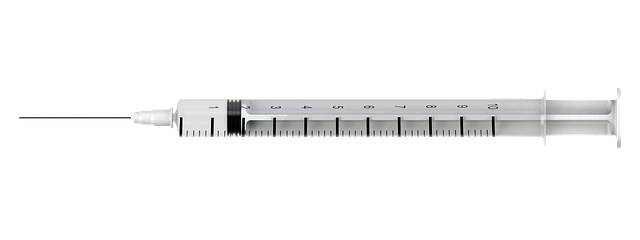Can Fitness Trackers Accurately Read Blood Pressure?
Do fitness trackers really work? As technology advances, people are increasingly putting their trust into wrist-worn fitness trackers to accurately read their blood pressure. As fitness trackers have become more popular, some wonder if they can really be trusted. In this article, we’ll take a look at the accuracy of fitness trackers and whether they can be used to monitor blood pressure.
List of Content
- 1. What Are Fitness Trackers?
- 2.
- 3. Benefits of Using Fitness Trackers to Read Blood Pressure
- 4. Potential Drawbacks of Using Fitness Trackers for Blood Pressure
- 5. When to Avoid Using Fitness Trackers to Read Blood Pressure
- 6. Final Thoughts
- My Awnswers to your Questions
1. What Are Fitness Trackers?
Fitness trackers are increasingly popular gadgets that many wear on their wrists. A fitness tracker records your activity levels, heart rate, sleep, and more. These devices are perfect for anyone that wants to improve their fitness levels or follow a healthier lifestyle.
One of the most useful features of a fitness tracker is its ability to track your steps. This feature allows you to monitor how active you’ve been throughout the day. It’s also great if you want to set a daily goal for yourself. You can keep track of whether or not you’ve hit it.
Fitness trackers also monitor other forms of physical activity, such as running, swimming, and cycling. This feature is extremely useful if you want to take an in-depth look at your fitness habits over time. You will even be able to see how your activity has changed since you first started using your fitness tracker.
Lastly, many fitness trackers come with extra features such as:
- Sleep tracking: This feature will help you understand how much restful sleep you’ve been getting.
- Heart rate monitoring: This feature offers insights into your recovery, performance and fitness levels.
- Event reminders: You can quickly set up reminders of your upcoming events such as a doctor’s appointment.
Overall, fitness trackers are incredibly useful devices for anyone looking to improve their fitness levels or take charge of their health. From the ability to track your activity levels to heart rate monitoring, these gadgets provide tons of useful features.
2.
Fitness trackers are now widely used by many in order to track their fitness progress. But, can they accurately read blood pressure?
Pros Of fitness trackers Reading Blood Pressure
1. Constant monitoring: Those who suffer from hypertension can be constantly monitored with a fitness tracker equipped with a blood pressure monitor. Knowing the blood pressure will help them make improvements in their lifestyle and diet as well as identify health problems if any.
2. Convenience: The fitness tracker is always with you and can be used to measure blood pressure at any time.
3. Motivation: The fitness tracker will motivate its users to stay fit by giving them reading of their blood pressure.
Cons Of fitness trackers Reading Blood Pressure
1. Accuracy: Data from a fitness tracker may not be as accurate as medical instruments. Inaccurate readings can result in wrong diagnosis if the users rely solely on the fitness tracker.
2. False Alarms: A fitness tracker may indicate a problem when in fact there is none. It relies on manual setting of the user, and slight variations in setting can bring about false alarms.
3. Cost: Fitness trackers with blood pressure readings may cost more than regular trackers.
Overall, fitness trackers that can read blood pressure can be an aid in monitoring the health of a person, but it should not be relied on solely to diagnose and treat potential problems. It is always best to consult a medical professional if there are any signs of an issue.
3. Benefits of Using Fitness Trackers to Read Blood Pressure
Accurate, Real-Time Readings: Fitness trackers provide accurate readings of your blood pressure. This is important as manual readings can be affected by your stress level, leaving you with a reading that may not be entirely accurate. With a fitness tracker, you will be able to get a steady read of your blood pressure levels in real-time.
Easier Tracking: Instead of having to make a special appointment with your doctor to take your blood pressure, you can now do it on your own with your fitness tracker. Not only is this convenient, but also help you understand your body better through regular tracking.
Motivation: Wearing a fitness tracker also adds a layer of motivation to keep your blood pressure levels in check. Knowing that you can monitor your blood pressure whenever you want is sure to give you the push you need to regulate it.
Alerts and Reminders:
Most fitness trackers come with alerts and reminders to remind you to stick to your fitness goals and follow your diet. Some fitness trackers can even alert you when your blood pressure has gone up or is too low. This is an amazing tool for staying on top of your heart health.
4. Potential Drawbacks of Using Fitness Trackers for Blood Pressure
Using fitness trackers for monitoring blood pressure can be beneficial, but there are also potential drawbacks that shouldn’t be ignored. Below are 4 potential issues to consider before relying too heavily on a fitness tracker for blood pressure.
- Unreliable Readings
Using fitness trackers for blood pressure readings can be inaccurate or inconsistent, especially if the tracker isn’t working correctly or if the cuff/sensor isn’t reading consistently. This can lead to readings that are far too low, or ones that are not accurately reflecting the user’s blood pressure.
- Lack of Context
Using a fitness tracker for blood pressure readings is a good way to gauge how exercise affects a person, however, this data has to be used in its proper context. An increase in blood pressure could be due to the exercise itself, but it may also be due to other factors, such as the stress or anxiety of the day.
- No Replacement for a Doctor
No matter how reliable your fitness tracker may be, it’s important to remember that it is not a replacement for regular doctor visits. A doctor can provide more detailed and tailored advice for a person’s individual situation and can assess their health more accurately than a fitness tracker ever could.
- No Predictive Tools
Fitness trackers are great for monitoring your current health, but they are not equipped with any predictive tools. This means that if a person’s fitness tracker is indicating an increase in blood pressure, they won’t be able to predict what could happen in the future if their health remains unchanged. It is important to be mindful of this when relying heavily on fitness tracker readings for blood pressure.
5. When to Avoid Using Fitness Trackers to Read Blood Pressure
Fitness trackers are an effective tool for monitoring your health and encourage physical activity. But there are certain instances when fitness trackers should not be used as a method to read blood pressure.
Interference from Other Factors: Data obtained from fitness trackers may not be reliable since several other factors can interfere in the accuracy of the reading. For instance, if you are moving, the acceleration of your body might tamper with the blood pressure reading. Similarly, if you engage in talking, drinking and eating food while taking the measurement, those activities could affect the results.
Fitness Trackers Aren’t Approved for Medical Use: Fitness trackers are designed to be monitoring devices and not medical devices. That means, it is important to maintain the distinction between medical and non-medical devices. Although under some circumstances, fitness trackers can provide a rough indication of blood pressure, they are not suitable for accurately diagnosing certain medical conditions.
Not Recommended for People with Hypertension: Fitness trackers might be safe to use if you have a slightly elevated blood pressure, however, when it comes to severe hypertension, it is better to avoid using fitness trackers. It is advisable to take your blood pressure readings only from a medically-approved device that conforms to the American Heart Association standards.
Here are some instances when fitness trackers should not be used to read blood pressure:
- Fitness trackers might give erroneous readings of blood pressure if there is any kind of interference from other factors.
- Fitness trackers are not approved for medical use.
- People with hypertension should not take blood pressure readings using fitness trackers.
- It is better to rely on medically-approved devices to check blood pressure.
6. Final Thoughts
In general, the journey of learning a new language is filled with a few highs and many lows, but the end result is always worth the effort and dedication. While you may not become an expert overnight, hold on to the mantra that “progress, not perfection,” is the goal.
At the end of the day, there’s no one-size-fits-all approach when it comes to learning. We all have different goals and motivations and this impacts how and what we learn. Therefore, be sure to tailor your language learning strategy to suit your unique needs and style.
As you are embarking on this journey, here are a few key takeaways to keep in mind:
- Find your motivation. Keep your end goal in mind and remind yourself why learning a language is important to you.
- Have patience. Language learning is a process and it takes time, so be patient and stay focused on the long-term results.
- Explore different resources. Don’t worry if one resource or method doesn’t work for you – try to find the tools that will work best for your unique needs.
- Have fun. Learning should be an enjoyable experience, not a chore. So make sure to incorporate fun and interesting activities into your language learning practice.
Learning a language is an incredible experience that goes beyond speaking to another person. It connects you with new cultures, opens up a whole new world of opportunities, and helps you develop new skills. So don’t be afraid to take the first step and get the ball rolling!
My Awnswers to your Questions
Q: What are fitness trackers?
A: Fitness trackers are wearable devices that are used to monitor physical activity. They measure metrics like steps taken, heart rate, and in some cases, even blood pressure.
Q: Are fitness trackers accurate?
A: It depends. While newer models of fitness trackers are designed to be accurate, older models may not be as reliable. It’s best to read reviews and compare different trackers before making your purchase.
Q: Can fitness trackers measure blood pressure?
A: Some fitness trackers are designed with the technology to measure blood pressure, but the accuracy of these measurements may vary. It’s best to consult with a doctor to get an accurate reading of your blood pressure.
Q: Are there any risks associated with wearing a fitness tracker?
A: Generally speaking, most fitness trackers are safe to wear. However, if the device is worn too tightly or causes irritation, it can increase the risk of skin problems. In addition, some people may experience allergic reactions to the materials used in the tracker. Be sure to read the instructions and check the material before using any fitness tracker.
Fitness trackers are useful tools to measure a person’s heart rate and other activity-related data, however, when it comes to tracking blood pressure, you should consider alternative methods to ensure the accuracy of your results. With the proper research and guidance, you can make sure you have the necessary accuracy to monitor and maintain your health.
